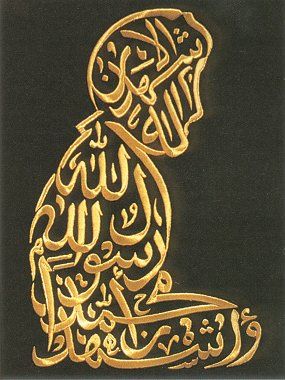Arabic and the Arabs
Salaam,
Despite the many problems in Arab society, their supremacist ways and the treatment they dish out to Asians, one thing I used to think is at least they speak Arabic, the language of Islam, meaning they have a grasp of the meanings of the Qur'an and have access to the classical Islamic texts. This fact in itself is something the Arabs have used as their leverage for many a century, claiming that as they spoke the language of the book, they had a natural advantage over the rest of us. So in a lot of ways non-Arabs have been at the beck and call of Arabs in terms of gaining sacred knowledge.
How things have changed. Long looong ago, Arabs were famed for their command of their language and this, alongside things like astrology, poetry and other such arts were what Arabs prided themselves on. But now...
Basically the Arabic that Arabs speak now is pretty much a different language to the Arabic (fus'ha) of the Qur'an . All my teachers have been first to say that the standard Arab on the street wouldn't have a clue about the grammar and make-up of the Qur'an as the Arabic they speak is so far removed from its roots. Another very interesting comment made by a teacher was that in classical times, the very definition of "Arab" was one who could speak Arabic, thus if you or I were to be able to speak Arabic we would be defined as Arabs, whereas a person who was born and bred in a "Arabic" country but was unable to speak the language would not be called an Arab. Therefore with the majority of "Arabs" not actually able to speak or understand the classical Arabic it raises a question on their identity... it also smashes the concept that they love to put forward that they as "Arabs" have a natural advantage over the rest of us. I think it was Imam Shafi who said that a little knowledge is worse than a lot of ignorance. Why? Because with a little knowledge you think you know it all and start running off and coming to your own conclusions whereas with ignorance at least you know you don't know anything to begin with.
Therefore my teacher was saying that this is a big problem in the middle east; that a lot of its people who think they know Arabic start reading Qur'an,hadith etc and coming to their own conclusions when actually they know very Very little of the language their trying to comprehend ending up doing things which isn't anywhere in the texts. This is also a reason for why so few Arabs study Arabic at university; as they think they already know it all.
The problem gets even worse in that not only do the Arabs speak a language alien to the language of the Qur'an, but around 40% of people in the Arab lands (I know theirs big discrepancies between countries eg 55% in Egypt and 20% in Qatar) are illiterate in this secondary language. this I was shocked by because what does this mean...? that these Arabs can't even read the qur'an. I know literacy rates are bad in non Arab countries too, but at least their the primary language isn't Arabic so a person may not know how to read and write in Bengali say but can do so in Arabic as this is the language of their religion (I know many people in this situation). So in a weird way it becomes an advantage in not having Arabic as your mother tongue as if you illerate in this, you lose the Qur'an whereas if your illiterate in Bengali you may still be literate in Arabic.
So where are we today...? We are in a world where Arab students of knowledge go to Pakistan to learn Urdu so they can gain access to the books of the Indian subcontinent ulema. Its true, its true, I have friends who have met these Arabs. Why has this dire situation occurred...? Due to the lack of importance put on the language in a lot of these countries where speaking English (alongside French,Spanish and German) is all the rage and you only study Arabic at university if you didn't get into any other course. Its a very sad state of affairs that this beautiful, rich language which is the key to gaining Islamic knowledge from the classical books but more importantly gaining an insight into the Glorious Qur'an, our manual on how to live our lives, has been demoted to this position.
Alhamdulilla though, i think there is indeed light at the end of the tunnel. Recently (as my teacher was saying) there has been a general resurgence in interest in Islam and with that to learn fus'ha (even though most of the teachers in Al-Azhar teach in a'miya..), and the "market" for teaching fus'ha to non-arabs has surged many times in the last few years, so inshaAllah the language of the Qur'an and of the books to which we owe so much will continue to flourish long into the future.
Salaam.



0 Comments:
Post a Comment
<< Home